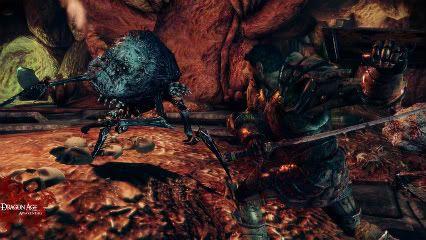
Every matured game developer has a niche. Every developer has some aspects they want to incorporate into every title they create.
Some companies want to brew games that involve arial combat, like Dark Void, which bore its roots in the Crimson Sky franchise. Other games want to rely heavily on running and gunning, a la Epic Games with their Unreal and Gears of War properties. Another developer, BioWare, would want you to create your own unique experience.
BioWare is a prime example of tradition, niche and success; a formula they have cautiously groomed for the better part of 14 years, improving with each and every release, and aging like a fine wine.
The company’s most recent endeavours, Dragon Age: Origins, and Mass Effect 2, released only a handful of months apart, managed to once again capitalise on this formula by drawing gamers a picturesque story-scape which could be wholly unique to each individual player.
Users were able to shape just who joined their party and, to a limited extent, cultivate them into what you wanted them to be based on your own narrative decisions. If you were in a rush, the game might be more difficult and lack several key story components, delivering a less than satisfactory experience. “Less satisfactory,” than perhaps any other gamer’s playthrough.

You spent so much time at the Citadel in the original title, that it was almost a character unto itself. In the sequel, you didn't have to go there unless you were curious.
But when is it just too much? The original Mass Effect release was almost a looter’s dream, with a mish-mashed inventory system to accompany it. It was a story-driven experience which tried haphazardly to meld both third person stop-and-pop mechanics to a fully fledged role playing game.
The second did away with much of that. BioWare managed to take all existing formulae, and then bring more ebb to the flow. The game improved on all previous experiences, and not only that, also managed to coerce them to work almost flawlessly together. A lot of this is credited to Electronic Arts’ help behind the scenes – a company which had managed to purchase the Edmonton, Montreal, and Austin based developers in the tail-end of 2007.
ME was always envisioned as a trilogy, however, in order to make that happen, some important gameplay facets also needed retooling. The action sequences in ME2 had managed to become much quicker and smoother, and to a certain extent, almost more “arcadey.” Regardless of the simplistic and repetitive nature of combat, gamers flocked to the title in record droves, and it became the first critical release of 2010.
DA:O, on the other hand, while still selling well enough to merit a sequel, was not quite the smash hit that ME2 was almost overnight. While ME2 had strove to become almost the norm (but with BioWare’s unique focus points), DA:O tried to harken back to the days of Baulder’s Gate, and did so very well. It is in fact, considered by many to be the top RPG of 2009, even despite its being geared to an extremely hardcore, or traditional audience. BioWare hasn’t forgotten their roots.

DA:O was a title modeled after classic BioWare releases. The formula paid off, and on Feb. 8, it was announced that the title shipped over 3 million units.
Where is BioWare set to venture from this point out? Certainly, the company made many people’s holiday seasons something to remember, but can they continue to do this? How much longer can the casual crowd be tricked, in a sense, into playing the RPG that is Mass Effect? How much longer can the developer cling to ways of the past before the “hardcore” becomes tired of stabbing dragons, or the “casuals” grow weary of sexing blue aliens?
BioWare has managed to finance a very, very lucrative and critically acclaimed library of work, all the while maintaining brand loyalty from two extremely different fan bases and demographics.
The company’s niche market is those of us who want choice: those of us who want a break from being told what happened thanks to cinema, and those of us who want to live our own destinies, even if they happen to be digital.
And let’s face it: if BioWare does to stray from their roots, another publisher will jump on the chance to bag a sweet piece of the pie already half-eaten by the great white north.

















Comments